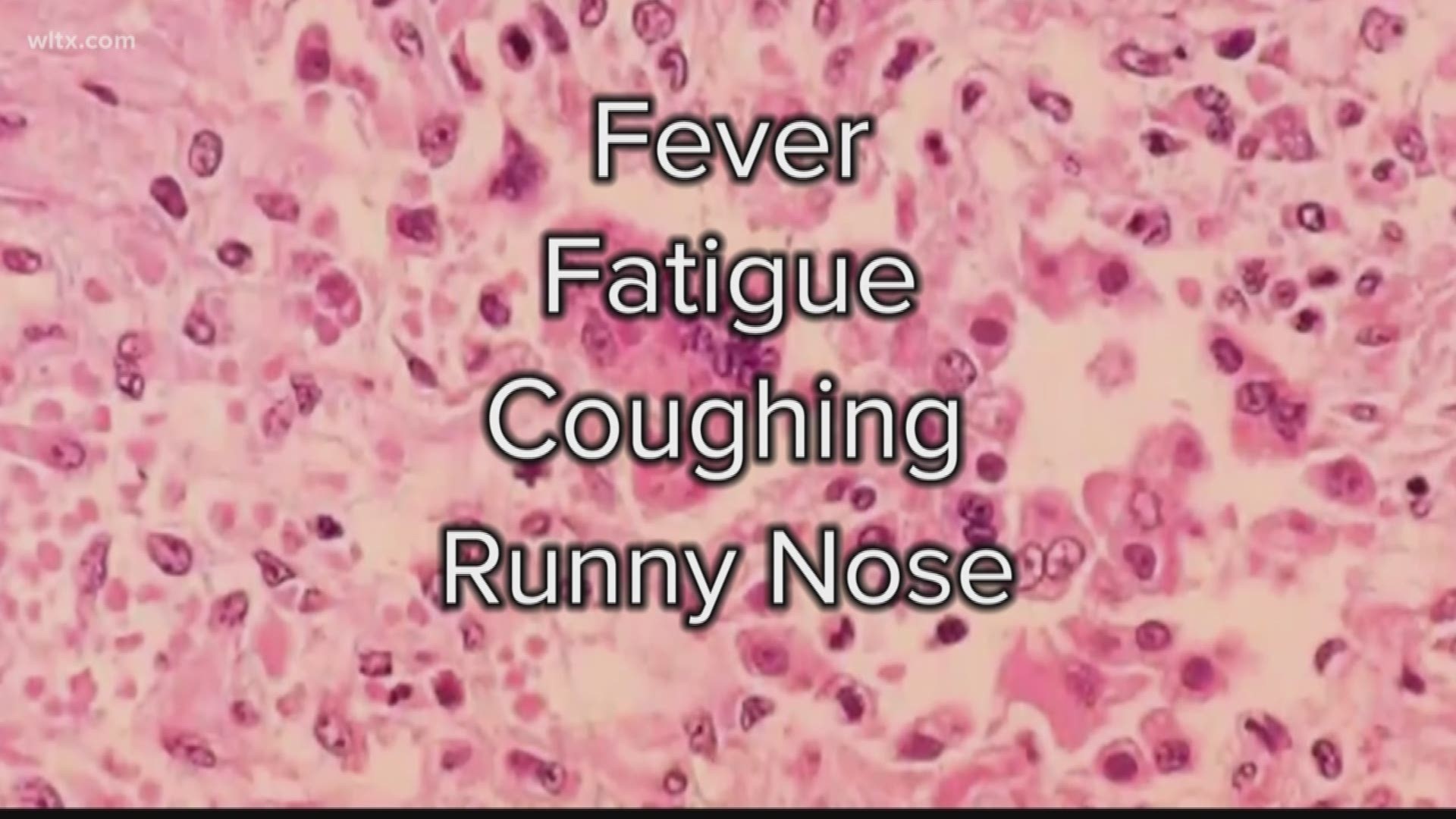Columbia, SC (WLTX) -- After more than 20 years, state medical officials confirmed the first case of measles in the Palmetto State earlier this month.
This comes as more South Carolina families are choosing not to vaccinate their children.
In early August, a resident in Georgetown County contracted the measles. Measles is a very contagious, viral respiratory illness known to cause fever, fatigue, coughing, a runny nose and the signature rash.
"Which is red spots that then coalesce to form larger patches. They typically start in the hair line, move down to the face, the neck, the torso then the lower extremities," said Dr. Lauren Matthews of Lexington Pediatric Practice in West Columbia.
Matthews says the measles is so contagious, if someone is walking around with the disease, 9 out of 10 people will catch it if they aren't protected.
The virus, which spreads through droplets and air contact, can also stay alive for up to two hours on a surface.
"Knowing that, it's easy to see how it could be spread through amusement parks or through crowded areas, airports, places like that," said Matthews.
Nationwide, there are 124 confirmed cases of the measles this year. Compare that to the 118 last year.
The worst year this decade was in 2014 when there were nearly 700 cases.
"In 2000, the CDC considered the measles to be eliminated in the United States," said Matthews. "That is, in large part, due to the strong vaccination program."
Doctors say the single best way to protect yourself against the measles is the MMR vaccine, which also protects against mumps and rubella.
"Children will typically get their first dose between 12 and 15 months, then they'll get a second dose between 4 and 6 years," said Matthews. "We know that if you get both doses of the vaccine, it's 97% effective."
But recently, more families decided against vaccinating their children even though that's required in public schools.
DHEC reports that the number of children not vaccinated over the past five years grew by 4,666 with parents citing religious reasons. The number of children not vaccinated during the 2017-18 school year because of religious reasons was about 9,427. That's 1.18 percent of the nearly 800,000 children enrolled.
Matthews says some parents may delay the vaccine, while others who opt out believe the vaccine can cause autism.
"[20 to 30 years ago], there was a bad article that came out from the UK that linked the MMR vaccine to autism," said Matthews. "Because of all of that, we're still seeing ramifications of people saying they don't want to get the vaccine because it causes autism. Unfortunately, that was a bad doctor that put out bad science, and we're still dealing with it now...The MMR is very safe. It has not been linked to autism and it's the best way to protect against measles, mumps and rubella."
Matthews adds that while there are side effects to vaccines, they are usually rare and very mild. Those side effects can include redness and pain at the injection site, and a fever for 1 to 2 days.
While measles cases aren't too common in the United States, the sickness is still prevalent around the world. Asia, Africa, Europe and the Pacific had recent outbreaks.
"If a person travels to that country and is unvaccinated and then returns, they're bringing it back with them," said Matthews. "Or if a person from that country is traveling to the U.S. and is contagious and doesn't know they have the virus, now we've brought it into a community where not everyone may be vaccinated."
Doctors also tell us that children under 5 years old and adults over 20 most commonly have complications with the measles. 1 out of every 4 who contract the illness will be hospitalized.
"Some of the more serious effects of the measles are swelling of the brain, which can cause permanent brain damage," said Matthews. "Out of every 1,000 children that contracts the measles, 1 or 2 of them is going to actually die. The most common cause of death from measles is pneumonia."
Doctors say you can get the measles vaccine at any time, and most measles cases we have in the U.S. come from an unvaccinated person.

